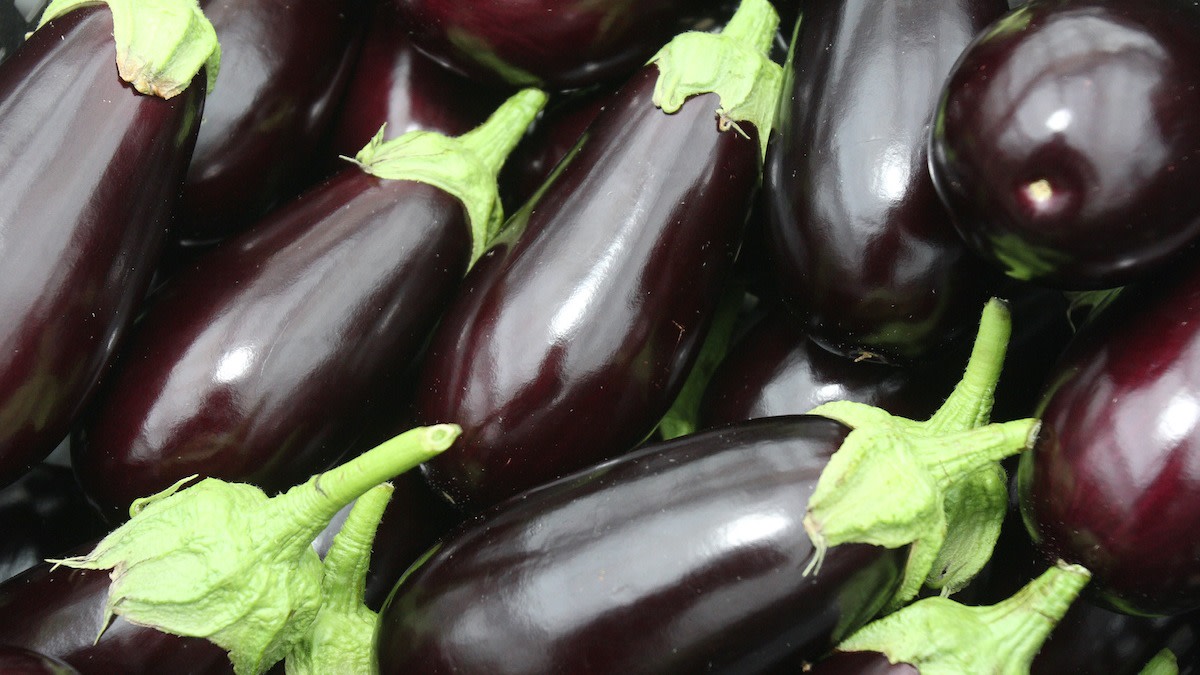How to Store Eggplant: 3 Ways to Preserve Eggplant
Written by MasterClass
Last updated: Jan 24, 2022 • 3 min read
Extend the shelf life of fresh eggplants so you can use these versatile veggies to make eggplant parmesan, caponata, vegan casseroles, and other main and side dishes.
Learn From the Best
3 Ways to Store Eggplant
You can store eggplant at room temperature, in the refrigerator, or in the freezer. Consider the following storage methods to keep the vegetable fresh for eggplant recipes:
- 1. Room temperature: You can store whole eggplants at room temperature. (Cut eggplant needs to go into the refrigerator or freezer.) Place the eggplant in a paper bag or a vented bowl. No need to tightly close the bag or cover the bowl—eggplants require airflow to stay fresh. Keep the eggplant out of direct sunlight and place it in a cool room, about 54 degrees Fahrenheit. Garages, basements, or other spaces with cold temperatures make for ideal conditions. The eggplant will stay fresh for four days.
- 2. Refrigerate: You can store eggplants in the crisper drawer for up to one week. Gently wrap your eggplant in paper towels to protect it from moisture, then place it in an unsealed plastic bag. Proper air circulation and separation from ethylene producers will keep your eggplant vibrant and firm for seven days in the fridge. To store roasted eggplant or other cooked eggplant dishes, place the food in an airtight container, seal, and store on your fridge shelf before reheating and serving. Leftovers will keep for up to five days.
- 3. Freeze: Frozen eggplant will last the longest. First, wash your eggplant gently with cold water, then remove the skin using a vegetable peeler. Place your eggplant lengthwise on a cutting board and slice it into thin round discs about one third of an inch thick. Boil a pot of water and add in a couple of squeezes of lemon juice to help the eggplant retain its color. Fully submerge the eggplants in the boiling water and boil for four minutes. Drain the pot and place the eggplant slices into the ice bath for five minutes. Drain the ice bath, pat the eggplant slices dry, and store in a tightly sealed freezer bag. (A vacuum sealer can help guarantee the bag is airtight.) Blanched and frozen eggplant will keep for six months.
If your eggplant has any water droplets on it, pat dry with a paper towel before storing. Lightly rinse only just before using; otherwise, excess moisture can cause spoilage.
3 Tips for Storing Eggplant
To extend the shelf life of your eggplants, consider the following tips:
- 1. Choose a fresh eggplant. Purchasing a good eggplant from the grocery store or farmers’ market is essential. Choose eggplants with a dark aubergine color; avoid any eggplants with discoloration. The eggplant should feel hefty and have smooth, shiny skin. Soft spots are a sign of rot.
- 2. Keep eggplant away from other produce. In the fridge or on the counter, you should keep your eggplant away from ethylene producers like apples, melons, and bananas. The emitted ethylene can quicken the ripening (and rotting) process for your eggplant and lead to a mushy, undesirable vegetable.
- 3. Spray your eggplant with lemon juice. If you have leftover eggplant slices, you can keep them for later use. Stack the cut eggplant in a container and spray some lemon juice over the slices. Gently toss the eggplant so the lemon juice touches all the pieces. The citric acid helps preserve the freshness of the cut vegetable. Then, seal the container tightly closed. You can use this leftover eggplant for pickling, tossing in olive oil with garlic and spices for a side dish, or making vegetable broth.
Want to Learn More About Cooking?
Become a better chef with the MasterClass Annual Membership. Gain access to exclusive video lessons taught by the world’s best, including Gordon Ramsay, Gabriela Cámara, Chef Thomas Keller, Dominique Ansel, Yotam Ottolenghi, Alice Waters, and more.
